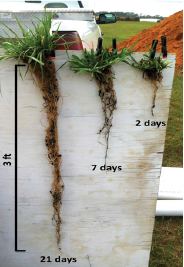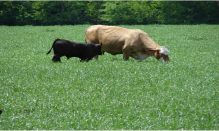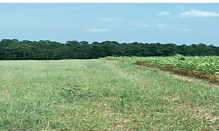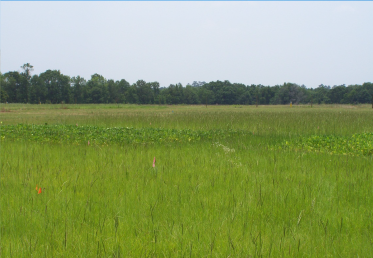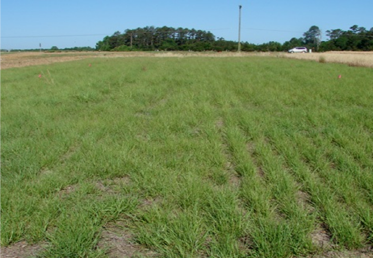Bahia grass – friend or foe?
| A major challenge to any successful organic production program is establishing sustainable methods to enhance soil quality. Since this is primary benefit of bahiagrass, we reasoned why not incorporate this strategy into organic production? |
| Our previous work has shown that sod based rotation with bahiagrass:1)Increases soil carbon of nutritionally deplete soils at a rate of 0.1% per year.2)Increases soil moisture retention3)Reduces soil compaction4)Increases earthworm populations but reduces nematode pests.
These factors result in reduced inputs (fertilization, irrigation and pesticides) and higher yields in many crops. |

